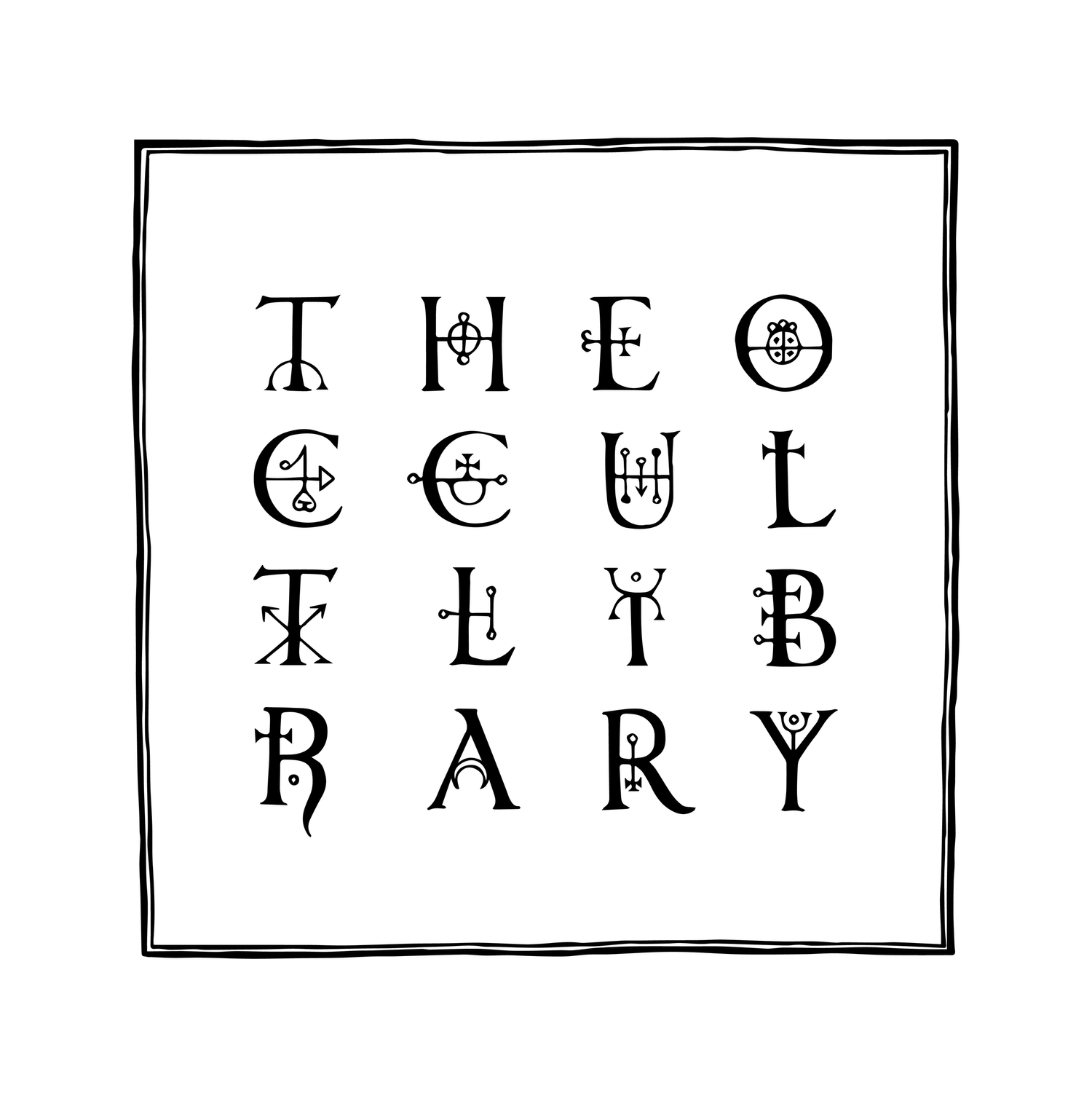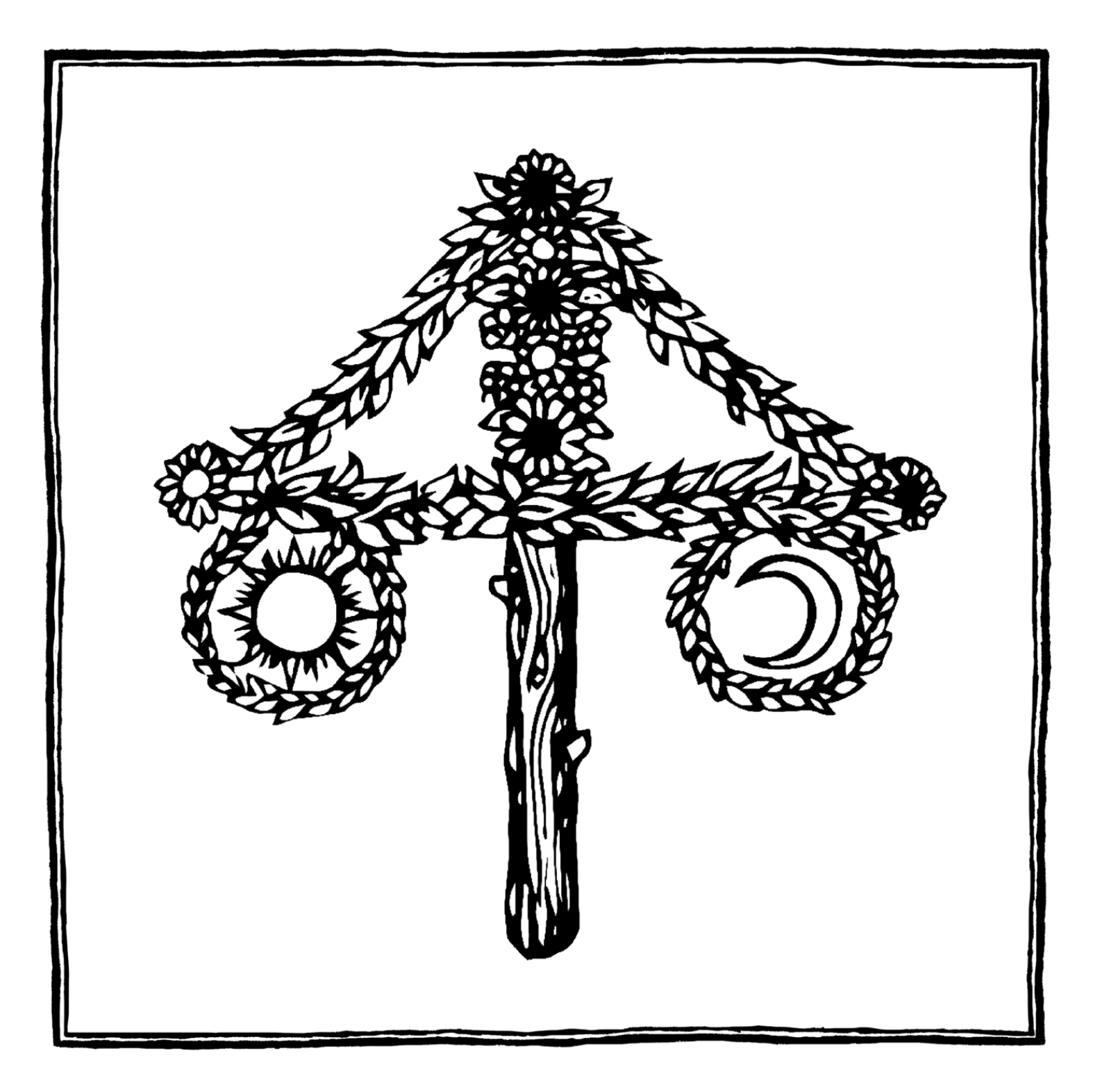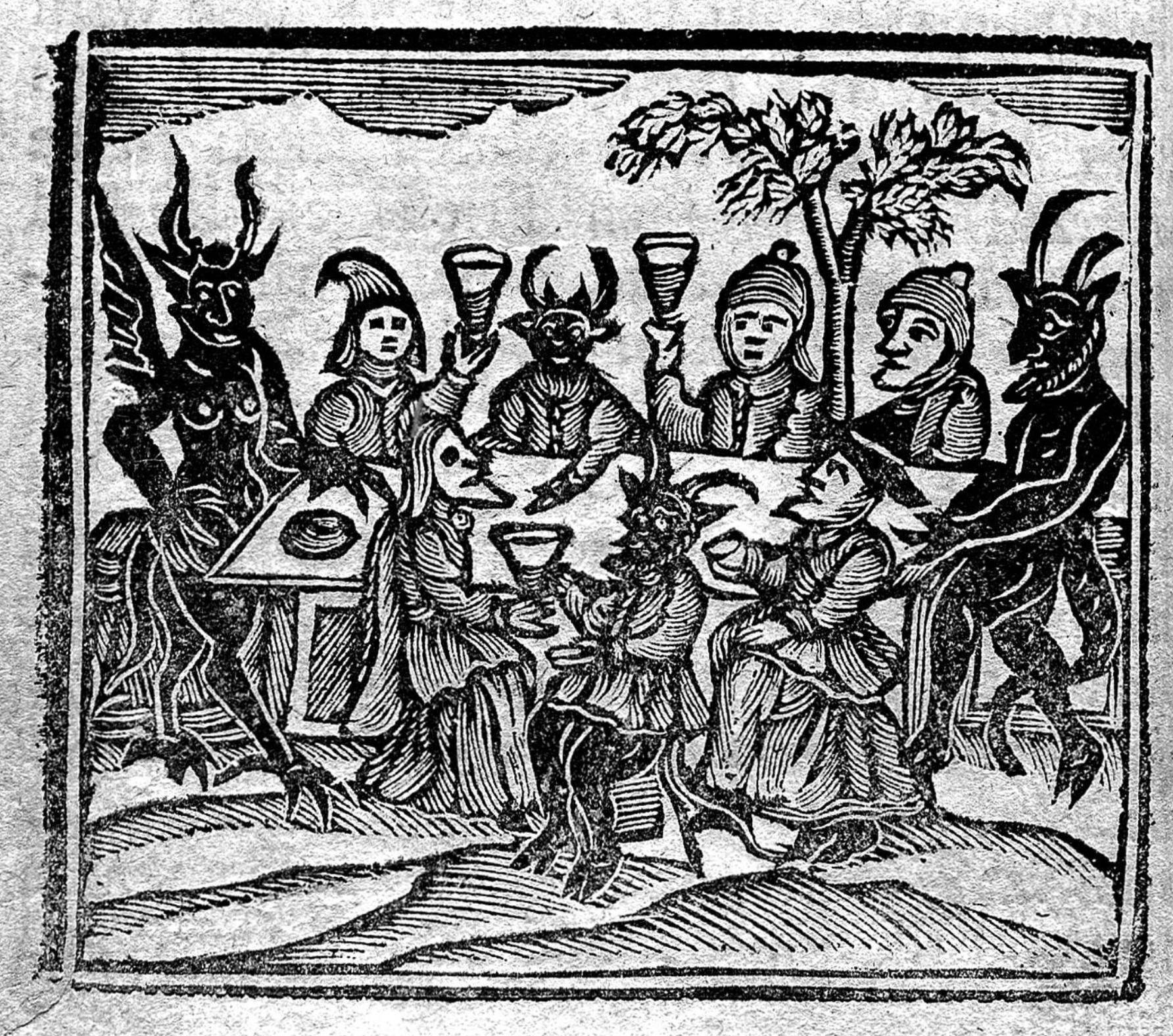Around & Within the Circle: Towards Defining “Occult Community”
Hello readers, and welcome to another edition of our weekly blog. We are grateful for your readership, and we look forward to sharing our thoughts, updates, and writing with you each week.
For today’s writing, we’d like to address a matter of definitions, particularly in light of a term which we quite often use. In fact, in the context of our aim and mission, it is perhaps the most used term on this blog. We are speaking of the term occult community.
How does one person – let alone a large-scale project like ours – express and utilize a term so broad & diverse. We believe that this expansiveness does not hinder us. Rather, it lends itself to our own wide-ranging approach.
Maypole image crafted by Leodrune Press for The Occult Library’s Community section.
It is first pertinent to note that the occult community does not consist solely of practitioners and occultists. Rather, in the context of occult practices, beliefs, and traditions, we believe the occult community to include anyone who partakes in active engagement with its features & qualities.
At its root, an interrelatedness is present here. Consider, for example, one who does not lay claim to an occult practice, yet engages in occult scholarship & knowledge production:
Such a scholar might develop a body of work which examines and shines a light on the opus of a storied occultist such as Gerald Gardner, inceptor of Wicca. Perhaps this is done critically, or in a manner which is ultimately instructive. In such a case, a better picture of Gardner and his system is developed.
Interrelatedness then enters the fold through the guise of the practitioner:
The occult practitioner working within the Wiccan system now has a greater sense, context, and understanding of the tradition within which they work. In turn, that practitioner is lent a more effective means of understanding, exploring, and developing their own functional occult practice.
A culminating component is a recursive one: as the latter of these two figures develops their practice, the wheel once again turns as the greater context of meaning and expression has been widened overall. In turn, the scholar now has more to work with so-to-speak.
The same is true of artists – sentinels of vision, who are ever shedding light on the new ways in which both the occult realm and its community are envisioned. Often, their work is the direct product of this active partaking in the fruits of the occult realm.
From: The history of witches and wizards: giving a true account of all their tryals in England, Scotland, Swedeland, France, and New England; with their confession and condemnation / Collected from Bishop Hall, Bishop Morton, Sir Matthew Hale, etc. By W.P. Public Domain Mark. Source: Wellcome Collection.
Yet, these are all still too narrow of examples. Not all persons concerned are counted as scholars, practitioners, or artists.
We at the Occult Library also count the genuinely and earnestly curious as members of the occult community. Were we not in our earliest guise as scholars, readers, organizers, practitioners, and artists mere entrants eager to explore the realm of occultism?
In this instance, the folks who utilize our project in a manner reflective of a progressively unfolding curiosity may be counted as members of the community.
With all of this considered we stand by our usage of this term, however encompassing and broad. Once again, this is by virtue of the interrelatedness of community activity.
Despite the geographic spatiality of the scholar to the office or classroom, the artist to the atelier or studio, the curious to the bookstore or moot, and the practitioner to the hallowed circle, all meet in the commons of expression, knowledge, and function.
Having each concerned themselves with the occulted features of spiritual traditions, each grasps a separate branch of the same fruiting tree.
In light of these branches, our aspiration to ultimately include as many community facets as possible in this project was decided: from conferences and events, to multimedia artist, to writing practitioners, The Occult Library has quickly grown to serve as an archive of not only texts and written materials, but an archive of the community’s wider set of expressions and activities.
We hope that this has offered you a sense of belonging and place.
Until next week,
– The Occult Library Staff


